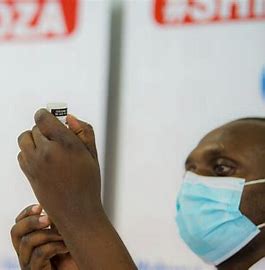FG Pushes for Local Drug and Vaccine Production to End Medicine Shortages in Nigeria
FG Pushes for Local Drug and Vaccine Production to End Medicine Shortages in Nigeria
By Achimi Muktar
The Federal Government has sounded a clear alarm: Nigeria must never again be caught off guard like it was during the COVID-19 pandemic.
At the 2025 National Harmonisation Conference in Abuja, the government declared its strong commitment to transforming Nigeria’s pharmaceutical landscape through local production of medicines, vaccines, and medical devices.
Speaking on behalf of the Director of Food and Drug Services at the Ministry of Health and Social Welfare, Olubunmi Aribeana, representative Adeola Olufowobi-Yusuf emphasized that local manufacturing is more than a health solution—it's a national security imperative.
“We cannot afford to be caught flatfooted like during the COVID-19 pandemic,” she warned. “Now is the time to unlock the health sector value chain and ensure that medicines are affordable, accessible, and of high quality.”
Themed “Contextualising the Presidential Initiative to Achieve Local Production of Medicines and Vaccines in Nigeria,” the conference brought together top players from the public, private, and community sectors to forge a unified roadmap toward pharmaceutical independence.
Aribeana noted that homegrown manufacturing offers a goldmine of opportunities—from job creation and trade to economic growth and health sovereignty. She stressed that tapping into the African Continental Free Trade Area (AfCFTA), one of the largest in the world, is impossible without a self-reliant pharmaceutical industry.
The World Health Organisation (WHO) was also present, with Supply Chain Management Officer, Omotayo Hamza, urging government agencies to stop operating in silos.
“We’ve got all the right policies,” Hamza said, “but without harmonisation between ministries—Health, Trade, Science and Tech—we risk spinning our wheels.”
Chinelo Okonkwo, a licensed pharmacist, addressed vaccine hesitancy head-on, reassuring Nigerians that locally produced vaccines meet international safety standards.
“Trust Nigerian vaccines,” she said. “They're produced with strict protocols, and they’re more reliable than imported ones that may have lost potency due to cold chain issues.”
She added that producing vaccines within Nigeria would ensure better quality control, reduce logistics costs, and improve public confidence in immunisation.
Olajide Adebola, facilitator of the conference and a key driver of the Presidential Initiative on Healthcare Value Chain (PVAC), explained the broader objective: to create a system that lowers medicine costs and increases access nationwide.
“Years ago, we couldn’t even manufacture certain basic drugs,” he noted. “But now, we’re moving in the right direction. These conversations are key to ensuring we sustain the progress.”
According to Adebola, skyrocketing medicine costs are largely due to import dependence, something the government is actively working to fix through targeted interventions and new executive policies.
The conference served as a rallying call for stakeholders to offer practical, grassroots-level policy recommendations that can guide the federal government’s evolving healthcare agenda.
As Nigeria pushes to become a pharmaceutical powerhouse in Africa, one thing is clear: the era of medical dependency is coming to an end—and the road to medicine security begins at home.





















